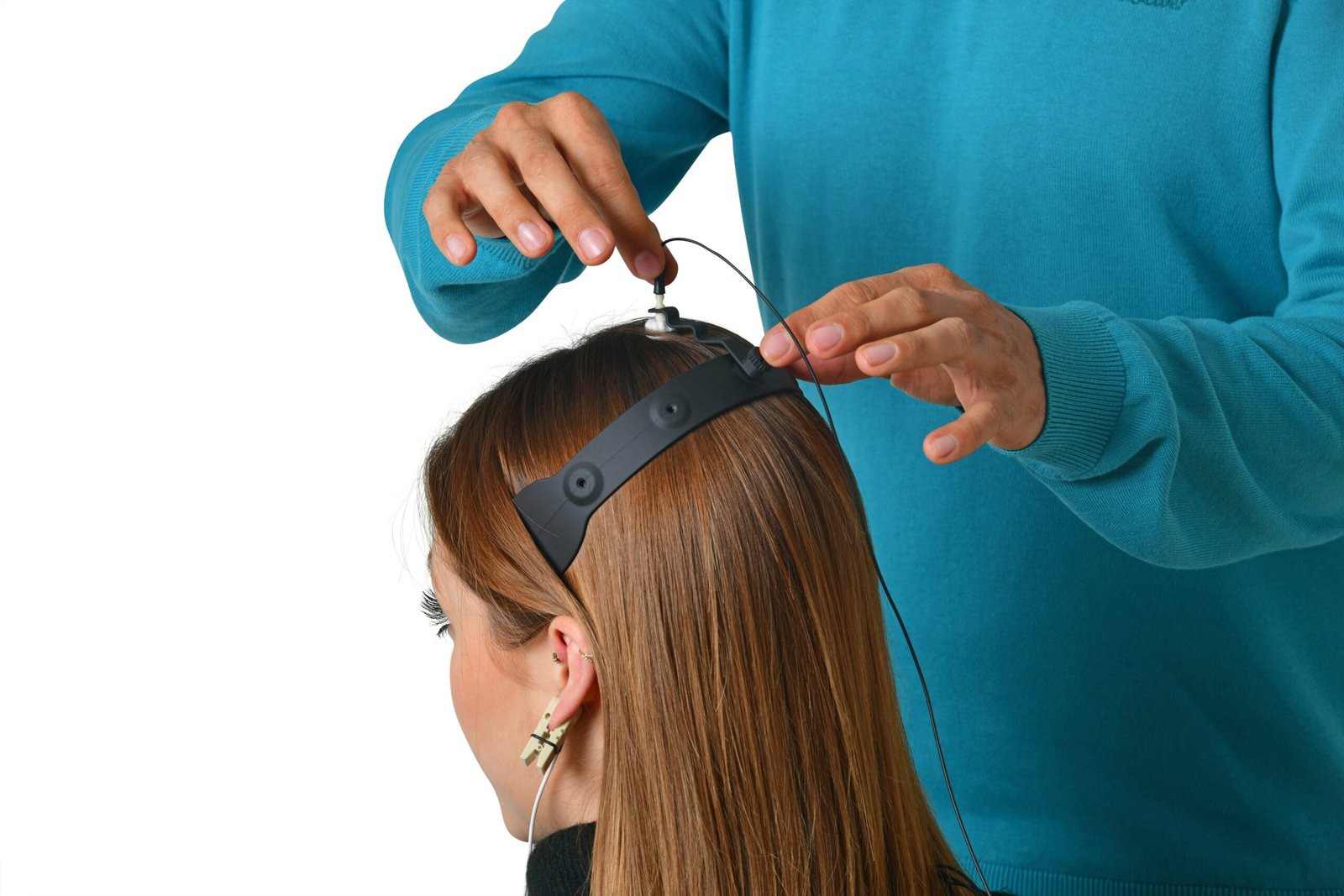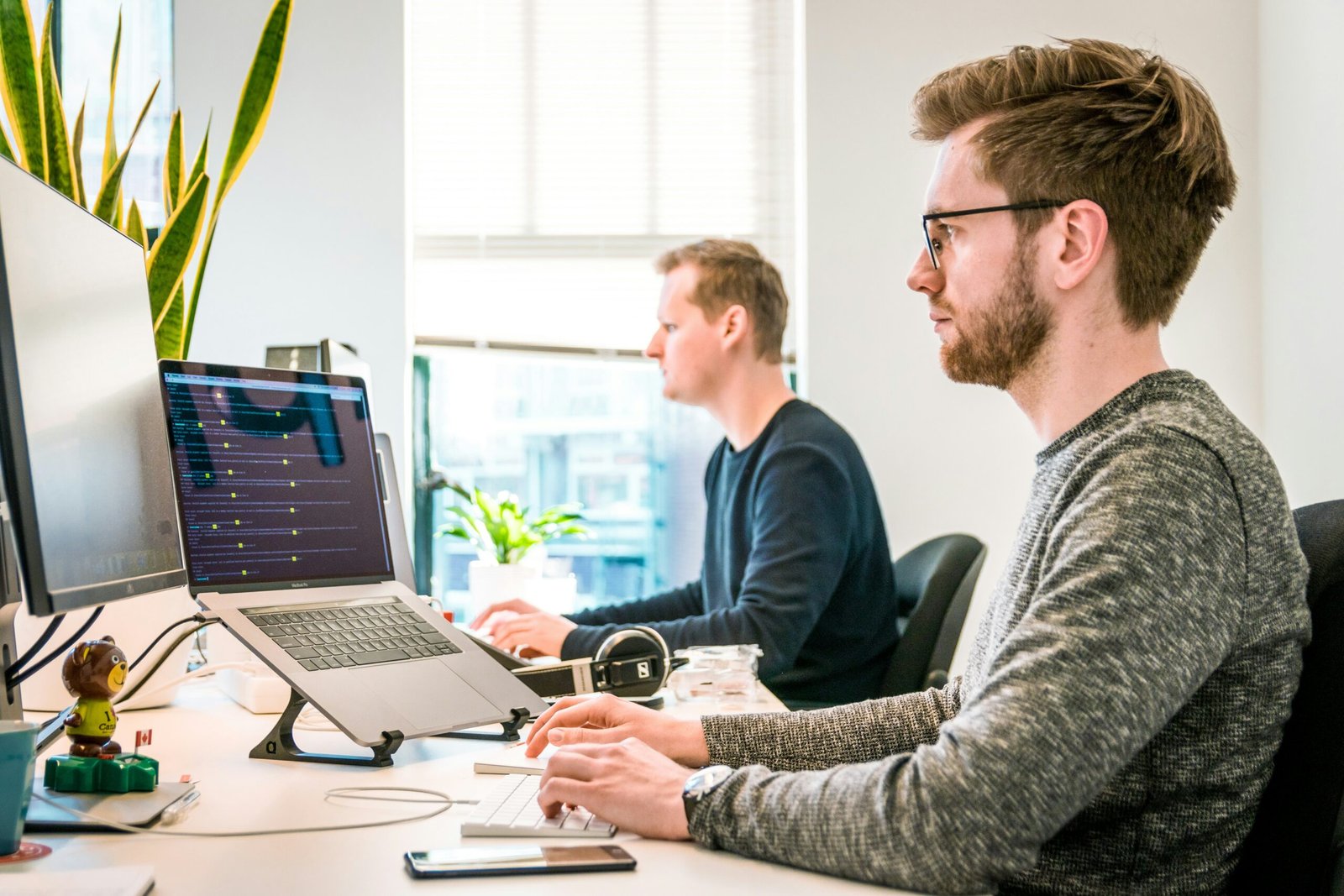Introduction to Anxiety and Its Impact on UK Military Veterans
Anxiety is a common psychological condition that affects millions of individuals globally, but it holds a particularly significant impact on UK military veterans. After serving in high-stress environments, many veterans return home carrying the weight of their experiences, which can often manifest as anxiety disorders. These conditions may include generalized anxiety disorder, panic disorder, and post-traumatic stress disorder (PTSD), all of which can have debilitating effects on daily life.
Research indicates that veterans are at a higher risk of developing anxiety disorders compared to civilians. The Royal British Legion reports that approximately one in five veterans experiences mental health issues, with anxiety and PTSD being among the most prevalent. This high incidence is often attributed to exposure to traumatic events during combat, which can leave lasting psychological scars. The transition from a structured military environment to civilian life can further exacerbate feelings of anxiety, leading to difficulties in social reintegration and employment.
The impact of anxiety on veterans can be profound. It can hinder personal relationships, limit professional opportunities, and, importantly, affect overall quality of life. In some cases, untreated anxiety can lead to substance abuse as individuals seek to self-medicate their symptoms. Moreover, a significant number of veterans may feel reluctant to seek help due to the stigma surrounding mental health issues in the military community, which underscores the importance of addressing these challenges effectively.
Given this context, it is essential to identify effective management tools that can provide veterans with the support they need. By leveraging technology, particularly applications designed to alleviate anxiety, veterans can gain access to resources that offer coping mechanisms, mindfulness training, and community support. These tools can play a vital role in promoting mental well-being and facilitating the journey toward recovery.
Understanding PTSD and Anxiety Disorders in Veterans
Post-Traumatic Stress Disorder (PTSD) and various anxiety disorders are prevalent mental health issues among military veterans. These conditions often stem from exposure to traumatic events during service, impacting not only the individual but also their families and communities. PTSD is characterized by recurring distressing memories, flashbacks, and severe emotional reactions to reminders of the trauma. Other anxiety disorders, such as Generalized Anxiety Disorder (GAD), Social Anxiety Disorder, and Panic Disorder, may also manifest, presenting additional challenges for veterans.
The symptoms of PTSD include heightened arousal, avoidance of reminders associated with the traumatic event, and negative alterations in cognition or mood. Veterans may experience symptoms such as irritability, difficulty concentrating, and feelings of detachment. Anxiety disorders can cause individuals to feel overwhelming apprehension or fear, often leading to avoidance behaviors that disrupt daily activities, such as social interactions and employment.
Several factors contribute to the development of PTSD and anxiety disorders in veterans. These factors can include the intensity and duration of combat experience, pre-existing mental health vulnerabilities, and the individual’s coping mechanisms. Additionally, veterans often encounter unique stressors upon returning to civilian life, such as difficulties in readjusting, reduced social support, and financial pressures. The transition from military to civilian life can encompass a range of emotional hurdles, which exacerbates mental health challenges.
The effects of these conditions can be pervasive, impeding one’s ability to function effectively in personal and professional environments. Relationships may suffer as veterans grapple with feelings of isolation or misunderstanding. Moreover, untreated PTSD and anxiety can lead to other complications, including substance abuse, depression, and even suicidal thoughts. Addressing these challenges is critical, and resources, such as mental health support and specific apps for anxiety management, can play a significant role in healing and recovery for veterans.
The Role of Technology in Mental Health Management
In recent years, technology has significantly transformed the way individuals manage their mental health. Particularly for military veterans, mobile applications have emerged as vital tools in addressing mental health conditions such as anxiety. These apps offer an accessible, convenient platform for those seeking immediate assistance or resources, complementing traditional therapeutic approaches. The integration of technology into mental health management provides a myriad of benefits, especially in fostering a sense of control and calm.
The convenience of mobile apps caters to the needs of veterans, who may often face barriers in seeking conventional therapy. Many individuals in this demographic experience challenges related to travel, mobility, or the stigma surrounding mental health discussions. Mobile applications allow users to engage with therapeutic techniques, mindfulness exercises, and peer support groups from the comfort of their own homes. This immediacy can be particularly beneficial during moments of heightened anxiety or distress, enabling users to access coping strategies at their fingertips.
Furthermore, many apps incorporate features designed specifically for veterans, addressing the unique experiences and challenges faced by this community. These tailored programs often include evidence-based tools, such as guided meditation, cognitive-behavioral therapy (CBT) resources, and relaxation techniques that are accessible anytime, anywhere. Enhanced features, such as mood tracking and community forums, foster a sense of connection and understanding among users, combating feelings of isolation that often accompany mental health issues.
As veterans increasingly turn to their smartphones for support, it is crucial for developers to emphasize user-friendly interfaces and privacy concerns. Through the optimal integration of technology and mental health management, veterans can empower themselves on their journey towards enhanced wellness. Ultimately, the role of technology in mental health has proven to be a significant adjunct to traditional therapeutic practices, offering hope and assistance when it’s needed the most.
Criteria for Choosing an Anxiety Management App
When selecting an anxiety management app, particularly for UK military veterans, several crucial criteria should be considered to ensure the application effectively addresses their specific needs. One of the foremost factors is user-friendliness. A well-designed app should be intuitive and easy to navigate, allowing users to access tools and resources quickly without feeling overwhelmed. This is particularly important for veterans who may experience symptoms of anxiety that hinder concentration.
Another significant criterion is the incorporation of evidence-based practices. It is essential that the app utilizes therapeutic approaches grounded in scientific research, such as Cognitive Behavioral Therapy (CBT) techniques, mindfulness exercises, or relaxation training. Apps that offer meditation guidance, breathing techniques, or stress-reduction strategies can enhance emotional control and overall mental well-being. Those seeking an effective anxiety management tool should prioritize applications that provide clear, structured programs based on validated methods.
The credibility of the app developers is equally important. Veterans should look for applications created by mental health professionals or reputable organizations. Researching the qualifications of the developers and the app’s endorsements from therapeutic communities can help build trust in the app’s effectiveness. Additionally, user reviews and testimonials can provide insight into the app’s reliability and benefits from those with similar experiences.
Availability of support resources is another essential consideration. An ideal app should offer additional materials such as articles, video content, or access to online support groups. Interaction with a community of users can foster a sense of belonging, which is often vital for veterans coping with anxiety. Assessing these criteria will help in selecting a suitable anxiety management application that aligns with the specific requirements and preferences of military veterans.
Tools for Calm and Control for UK Military Veterans
Top Apps for Managing Anxiety in UK Military Veterans
Managing anxiety can be particularly challenging for UK military veterans, who may face unique stressors stemming from their service. Thankfully, several apps have been developed to aid veterans in navigating these difficulties effectively. Below is a curated list of some of the best anxiety management apps tailored specifically for their needs.
Headspace is a prominent mindfulness app that offers guided meditations and sleep aids designed to promote relaxation and mental well-being. Veterans can benefit from its variety of meditative sessions focused on managing anxiety, reducing stress levels, and improving sleep quality. Its user-friendly interface and engaging content make it an excellent choice for those seeking a structured approach to mindfulness.
Calm is another highly recommended app, providing resources such as guided meditations, breathing exercises, and soothing soundscapes. It is particularly useful for veterans looking to combat anxiety through relaxation techniques. The app also features specific programs addressing trauma and anxiety, which can resonate with veterans dealing with post-service challenges.
TalkLife offers a platform for veterans to connect with peers experiencing similar struggles. This app fosters a supportive community where users can share their feelings and receive encouragement, which can be incredibly therapeutic for individuals dealing with anxiety-related issues. Its approach to peer support emphasizes the importance of connection in managing emotional distress.
Mindwarrior, specifically designed for veterans, integrates cognitive behavioral therapy techniques to help users confront and manage anxiety triggers. Offering tools to build resilience and cope with anxiety in real-time, this app is a valuable resource for veterans looking to empower themselves and regain control over their mental health.
Finally, Anxiety Relief: Breathing Exercises provides a collection of techniques aimed at promoting relaxation through controlled breathing exercises. This is especially beneficial for veterans who may find themselves in high-pressure situations and need practical tools to manage anxiety quickly. Each exercise is carefully designed to help users refocus their breath and calm their minds.
These apps collectively offer essential tools and resources, enabling UK military veterans to manage their anxiety more effectively. Their combination of mindfulness, community support, and therapeutic techniques aligns well with the diverse needs of veterans seeking calm and control in their lives.
How to Effectively Use Anxiety Management Apps
Integrating anxiety management applications into daily routines can significantly enhance their effectiveness. To start, it is crucial to set clear and achievable goals. By defining specific objectives, such as reducing anxiety levels or practicing mindfulness for a certain duration each day, users can create a structured approach to their mental health journey. This goal-oriented mindset helps in maintaining motivation and offers a clear direction for utilizing the app’s features effectively.
Next, leveraging the full range of features offered by anxiety management apps is equally important. Most applications provide tools such as guided meditations, breathing exercises, and mood tracking functionalities. Encouraging users to explore these diverse offerings can help them discover which methods resonate best with them. For example, someone who finds solace in breathing exercises can prioritize this feature, while another user may prefer engaging in daily journaling within the app. Customizing the experience according to personal preferences is vital for fostering a sense of ownership and commitment.
In addition, incorporating feedback mechanisms to assess progress over time plays a key role in effectively using these tools. Many anxiety management apps include tracking options that allow users to log their emotions, mood changes, and overall stress levels. Regularly revisiting this data not only provides insight into patterns but also highlights improvements and areas requiring more focus. It is advisable to set aside time weekly to reflect on these insights, adjusting strategies as necessary. This iterative process ensures that the app remains an adaptive tool in managing anxiety, ultimately leading to an enhanced sense of calm and control.
Additional Resources for UK Military Veterans Struggling with Anxiety
While apps serve as excellent tools for managing anxiety, it is crucial for UK military veterans to explore additional resources that can provide support and assistance. Various organizations and services exist to ensure veterans have access to comprehensive care and guidance. These resources can play a significant role in alleviating anxiety symptoms and fostering a sense of community among veterans.
One valuable resource is the Veterans’ Mental Health Helpline, which offers 24/7 support. This confidential helpline connects veterans to trained professionals who specialize in mental health issues, including anxiety and PTSD. By reaching out to this helpline, veterans can receive immediate assistance and guidance on next steps towards recovery.
In addition to hotlines, several websites provide information and support tailored specifically for veterans. The UK government’s official website includes resources on mental health services available for veterans, helping individuals navigate their options and find services in their areas. Furthermore, organizations such as Combat Stress offer specialized services for veterans experiencing anxiety, providing access to various therapies, including cognitive behavioral therapy (CBT) and peer support groups.
Local support groups can also serve as an effective platform for veterans to share their experiences and coping strategies. Many communities have established veteran’s networks or therapy groups where individuals can connect with others facing similar challenges. Participation in these groups can reduce feelings of isolation and enhance emotional well-being, essential aspects of managing anxiety.
Lastly, public forums and online communities provide an additional layer of support. Veterans can engage with their peers in discussions related to anxiety management, offering a sense of camaraderie and shared understanding. These platforms can also provide access to useful information about workshops, seminars, and other events focused on mental health recovery for veterans.
Personal Stories: Veterans Who Found Relief Through Apps
Many military veterans have shared their personal journeys towards managing anxiety effectively, often highlighting the significant role that mobile applications played in their recovery. One such veteran, James, a former member of the UK Armed Forces, recounts his struggles with post-traumatic stress disorder (PTSD) and anxiety after returning home. He discovered a mindfulness app that guided him through meditation exercises tailored for managing anxiety. James states, “In just a few weeks, I noticed a tangible difference in my overall well-being. The guided sessions provided a way for me to connect with my thoughts and emotions in a calm environment.”
In another compelling story, Sarah, a veteran who served in a combat role, shares how an anxiety management app helped her develop coping strategies. After experiencing overwhelming feelings of anxiety during social situations, she turned to a digital platform focused on cognitive behavioral therapy (CBT). “This app not only educated me about my anxiety triggers, but it also equipped me with practical techniques to handle them,” she explains. Sarah emphasizes that the accessibility of these digital tools made them an invaluable resource, allowing her to practice self-care whenever she needed it.
Similarly, Peter, who transitioned from military life to civilian life, credits a comprehensive sleep management app for helping him combat insomnia, a common issue linked to anxiety among veterans. “Using the sleep tracking feature, I was able to understand my sleep patterns better and made changes that enhanced my rest. Improving my sleep had a direct impact on reducing my overall anxiety levels,” Peter shares.
These personal testimonies underscore the diverse pathways that veterans have taken towards finding relief through anxiety management apps. By sharing their stories, they not only inspire others facing similar challenges but also highlight the practical benefits of integrating technology into mental health strategies.
Conclusion: Embracing Technology for Wellness
As the awareness of mental health challenges continues to grow, it is important for UK military veterans to recognize the value of technology in managing anxiety. The digital age offers a myriad of resources that can serve as effective tools in one’s mental health journey. Utilizing apps specifically designed for anxiety management can empower veterans to take control and foster a sense of calm. These applications enable users to cultivate mindfulness, track their moods, and even connect with mental health professionals, all from the comfort of their own devices.
The integration of technology into mental health strategies can provide veterans with immediate support, making it easier to implement self-care practices in their daily lives. The availability of user-friendly apps allows individuals to engage in therapeutic activities whenever they find themselves feeling overwhelmed. This flexibility not only presents an opportunity for personal growth but also encourages a proactive approach to mental wellness. By taking the initiative to explore these resources, veterans can enhance their coping mechanisms and ultimately improve their well-being.
Moreover, community forums and support groups offered within certain applications can reduce feelings of isolation. Many veterans may experience a sense of detachment after their service, making it essential to find a supportive network. Engaging with peers who share similar experiences can provide invaluable comfort and understanding. In cultivating these connections, veterans can not only share their journeys but also learn new strategies for managing their mental health.
In conclusion, the effective management of anxiety through apps and technology can transform the way military veterans approach their mental health. By embracing these tools, veterans are encouraged to explore their options and take significant steps toward achieving wellness and balance in their lives. With the right resources, they can navigate their emotions and reclaim their sense of peace.






